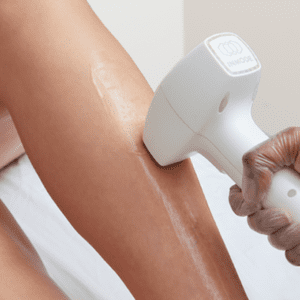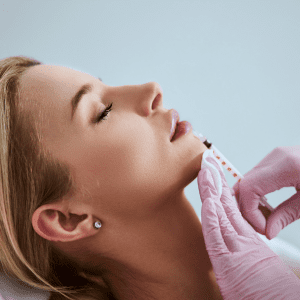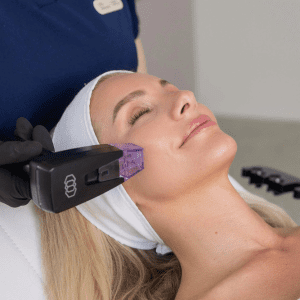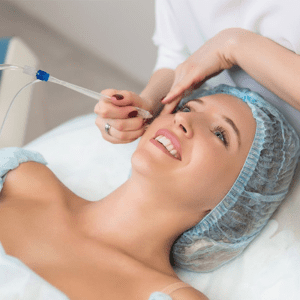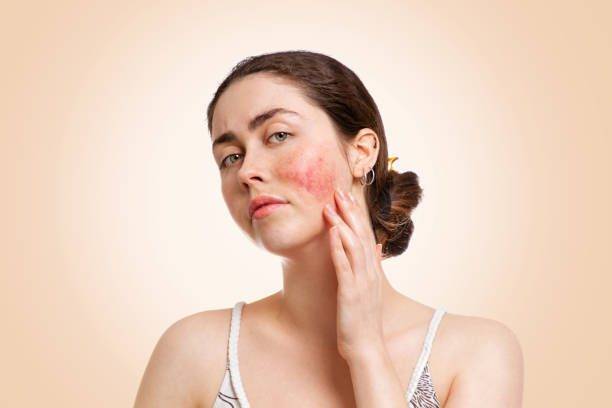
Rosacea: What is it?
The chronic inflammatory skin condition known as rosacea shows symptoms through redness together with flushing and visible blood vessels and occasional acne-like pimples. This represents a progressive disorder that requires particular care, but doctors tend to mistake it for adult acne or general skin sensitivity.
The skin condition usually targets the chin area along with the forehead, nose, and cheeks before it advances with time. Rasa Derm implements a comprehensive professional method to treat this by decreasing inflammation while strengthening skin barriers and making redness less noticeable.
Rosacea: What Causes It
Multiple factors trigger rosacea by causing blood vessel changes and skin sensitivity while leading to persistent inflammation rather than a single cause.
People who have family members with rosacea face an elevated chance of developing this condition. The skin becomes more reactive to environmental and lifestyle triggers because hereditary factors make its blood vessels more sensitive and its immune system more active.
The immune system operates excessively in skin areas where rosacea tends to occur. Chronic inflammation together with redness and recurring flare-ups occurs because the skin overreacts to typical triggers, which include heat and skincare products.
UV radiation serves as a leading factor that triggers rosacea in patients. The skin develops long-term redness and vascular flare-ups because sunlight damages blood vessels and creates inflammation.
The blood vessels in rosacea-prone skin tighten when exposed to hot weather and spicy food or steam rooms and temperature fluctuations, which worsen facial redness and flushing.
People with rosacea typically show elevated numbers of the naturally occurring skin mite known as Demodex. The excessive presence of Demodex mites can lead to inflammation, which produces noticeable lumps that cause skin texture changes.
Drinking red wine together with hot liquids and excessive caffeine consumption causes blood vessels to expand, which leads to sudden flushing mainly in the nose and cheek areas.
Recurring facial redness together with visible capillaries and sudden flushing along with burning sensations could indicate this. Avoidance of triggers such as harsh products, spicy foods, sun exposure, and extreme temperatures helps reduce flare-ups. Patients tend to delay effective therapy because they either self-diagnose their condition or rely solely on home remedies.
See a Rasa Derm dermatologist if:
- The face redness either persists or shows signs of worsening.
- Your acne persists after using treatment.
- Your skin appears thicker, while blood vessels become visible through it.
- Over-the-counter products cause adverse skin reactions.
The prompt attention of a professional along with early detection helps to minimize symptoms while preventing it from advancing to worse stages.
The expert dermatologists at Rasa Derm create personalized treatment plans for rosacea patients to decrease redness while calming inflammation and protecting skin barriers through non-invasive methods.

IPL Photofacial
Intense Pulsed Light targets dilated capillaries and diffused redness by gently heating.
- Session Duration: 30–40 minutes
- Sessions Required: 4–6 sessions
- Gaps Between Sessions: 3–4 weeks
- Results In : Reduced redness, Faded vessels
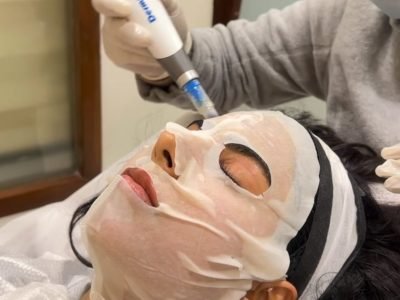
Dermapen-4 (Microneedling)
Controlled microneedling with Dermapen-4 helps reduce inflammation.
- Session Duration: 40 minutes
- Sessions Required: 3–5 sessions
- Gaps Between Sessions: 4 weeks
- Results In : Strengthened barrier, Calmer skin
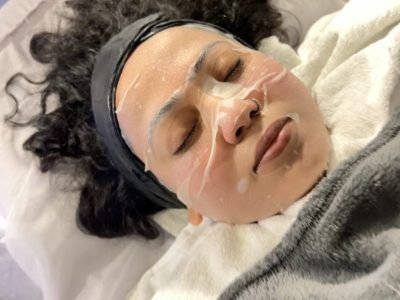
Calming Medifacial + Anti-Redness Serums
A gentle medifacial combining anti-inflammatory ingredients.
- Session Duration: 60 minutes (clinic mask) + home care
- Sessions Required: 3–6 sessions
- Gaps Between Sessions: Every 2–3 weeks
- Results In : Soothing effect, Hydrated skin
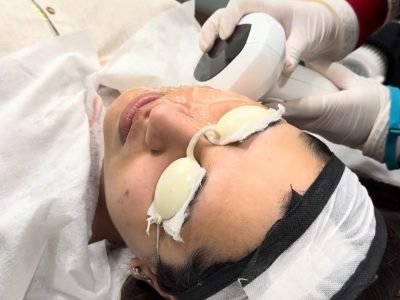
Lumecca Photo Facial
Intense pulsed light reduces pigmentation and boosts radiance.
- Session Duration: 30–45 minutes
- Sessions Required: 3–5 sessions
- Gaps Between Sessions: 3–4 weeks
- Results: Brighter, Even-toned skin
At your consultation, our dermatologists will assess your rosacea type, skin triggers, and current skincare habits. Your treatment plan may combine laser therapy, calming facials, and at-home care tailored to your sensitivity level. The goal is not only to reduce visible symptoms but to improve your skin’s long-term resilience.




